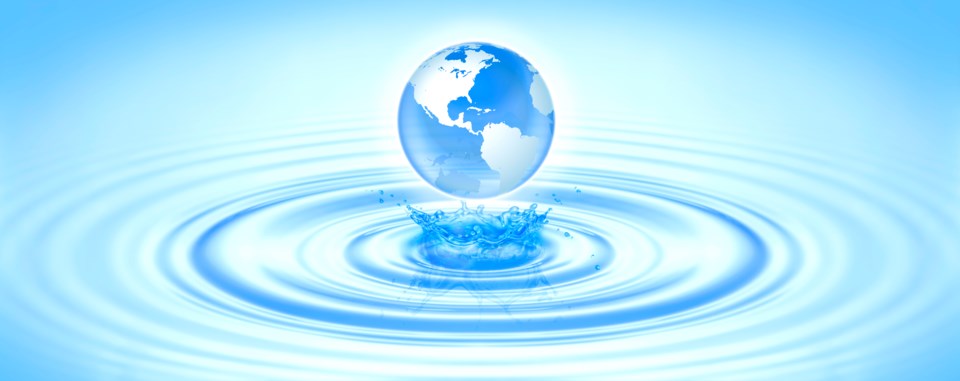There is no doubt that we have so much to be grateful for living in Whistler and one of those things is the quality of our tap water.
I was thinking about this recently after reading a United Nations’ update that arrived in my email inbox on World Water Day, which fell on March 22 this year.
Canada, as many of you likely know, has one-fifth of the world’s freshwater, a quarter of its remaining wetlands and its longest coastline—but despite this it is easy for us to take water for granted.
Reporter Braden Dupuis’ comment during the Whistler Library’s Media and Misinformation night on March 18 also triggered some thoughts about water. The panel of Pique journalists was asked what stories had fallen by the wayside as COVID-19 took over the headlines a year ago. Braden mentioned the ongoing investigations in Whistler into the quality of our drinking water.
You may recall that in January of 2020 mayor and council received an update from staff about their plans to address the corrosive nature of Whistler water after an investigative report by the Toronto Star (Vancouver), Global News and the University of British Columbia. As part of the investigation, reporters collected water samples from 10 homes, two hotels and one Airbnb property and had them tested for lead.
“All of the samples contained traces of lead and seven contained lead levels exceeding Health Canada’s guideline of five parts per billion (ppb). In addition, samples collected from one hotel room and another home rented through Airbnb also exceeded the recommended federal limit,” a story published by the outlets read.
The lead was likely a result of corrosive water interacting with plumbing fixtures on private property.
Whistler’s water is complex, as it comes from both surface and groundwater sources —separated into two systems: Community and Emerald. Surface water comes from 21 Mile Creek (which is pH neutral)—it’s not used when the creek water is turbid (usually after rainfall and snowmelt events)—while groundwater is supplied from 14 active wells (used when 21 Mile Creek is offline, or when demand exceeds what the creek can supply).
Water is treated at eight locations before distribution. So any proposed upgrades to groundwater treatment to address corrosiveness would need to be made at seven different locations in the Community system, as well as one in the Emerald system.
Please keep in mind that Whistler’s water consistently meets the conditions of its permits to operate, and RMOW staff sample water at 24 locations in the distribution system every second week. And work is continuing on this file at the municipal level.
The situation with our water quality, while it gives one pause for thought, also seems trivial when compared to the situation with drinking water on many First Nation reserves. Just about one month before the UN’s World Water Day, Canada’s Auditor-General Karen Hogan tabled a report in Parliament which found that the federal government has not provided adequate support to First Nations to access safe drinking water.
“Access to safe drinking water is a basic human necessity,” she said. “I don’t believe anyone would say that this is in any way an acceptable situation in Canada in 2021.”
The report concluded that 100 long-term advisories were lifted between 2015 and 2020, but 60 remained in effect as of Nov. 1, 2020, and almost half of those have been in place for more than a decade. In 2015, Prime Minister Justin Trudeau committed to ending all long-term advisories this year, but the government has now admitted that it cannot meet that timeline. Its latest funding announcement has budgets going out past 2027 to address the issue.
The theme of this year’s World Water Day is valuing water.
“The value of water is profound and complex. There is no aspect of sustainable development that does not fundamentally rely upon it,” said the UN Secretary General António Guterres.
Currently it is estimated that 2.2 billion people live without access to safe water (let’s not forget the importance of water for hygiene as well in these pandemic times).
Next time you turn on your tap for a glass of that fresh, frigid, clean Whistler water (after letting it run until it’s cold), consider how you value this resource and what you can do to protect it.




